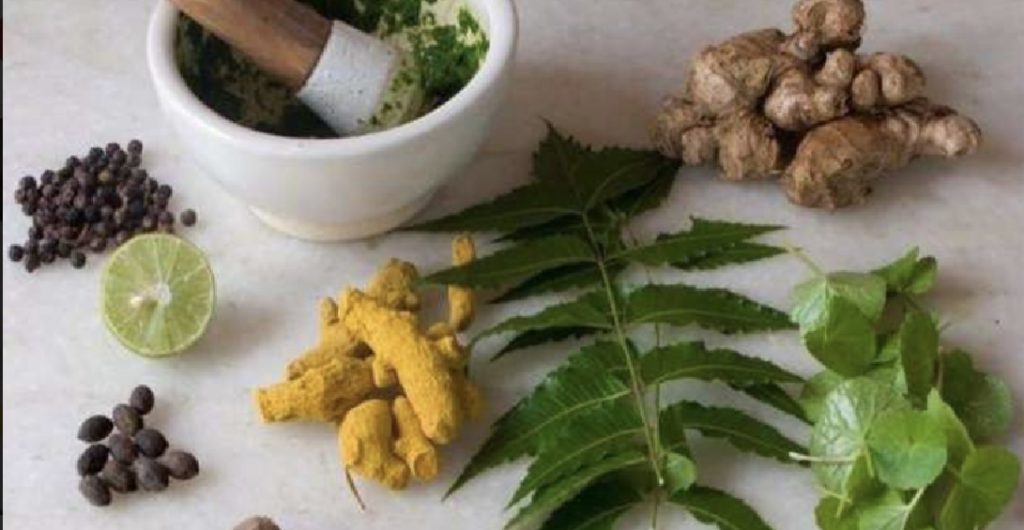4 Healing Herbs for Hepatitis: Exploring Herbal Remedies and Their Benefits
By Nmami Agarwal 28-Jul 2023 Reading Time: 11 Mins

Nature has always been a source of healing for mankind and since centuries herbs have been used to cure various ailments, including liver disorders such as hepatitis. Hepatitis is a viral infection that affects the liver and can cause damage to the liver cell it depends on the severity of the disease, hepatitis can lead to liver cirrhosis, liver failure, and even liver cancer. While modern medicine has made significant progress in treating hepatitis, many people are turning to natural remedies to complement their treatment. We will explore the healing power of nature and discuss four herbs that have been scientifically proven to be effective in treating hepatitis.
What is hepatitis and what are the conventional treatments?
Hepatitis is a viral infection that affects the liver and it can cause liver inflammation and damage, leading to serious health complications if left untreated. There are three main types of hepatitis: A, B, and C, each caused by a different virus. Hepatitis A is usually a short-term infection and does not cause long-term damage, while hepatitis B and C can become chronic and lead to liver cirrhosis or cancer. Conventional treatments for hepatitis include antiviral medications, which can help to slow the progression of the virus and reduce liver inflammation. However, these medications can have side effects and may not be effective for everyone they can be expensive and not easily accessible to everyone. Fortunately, there are natural remedies that can be used in conjunction with conventional treatments to help alleviate symptoms and promote liver health. Herbs such as milk thistle, dandelion root, licorice root, and turmeric have been shown to have anti-inflammatory and antioxidant properties that can support liver function and help to protect the liver from damage. It’s important to note that natural remedies should be used under the guidance of a healthcare practitioner and should not be used as a substitute for conventional medical treatment.
Benefits of using herbs for hepatitis treatment
There are many benefits of using herbs for hepatitis treatment and one of the most significant benefits is that herbs have been used for medicinal purposes for centuries. In fact, many modern medicines are derived from plants so the herbs are natural and offer a safer alternative to conventional medication, which often comes with side effects that can cause additional health problems. Using herbs for hepatitis treatment can also be cost-effective also traditional medicines can be expensive, and some insurance providers may not cover the full cost of treatment. On the other hand, herbs are widely available and can often be grown at home, which means they are more affordable also herbs also offer a more holistic approach to treatment. They not only treat symptoms but also work to strengthen the body’s overall health and immune system and many herbs contain antioxidants, anti-inflammatory, and antibacterial properties that can help to reduce inflammation, fight off infections, and promote overall wellness.
Finally, using herbs for hepatitis treatment can offer a sense of empowerment and control over one’s own health.
Milk Thistle
Milk thistle, also known as Silybum marianum, is a herb that is commonly used for liver detoxification and treatment of liver-related diseases and it’s active ingredient is silymarin, which is believed to have antioxidant and anti-inflammatory properties. According to various studies, silymarin has the potential to reduce liver inflammation, improve liver function, and protect liver cells from damage caused by toxins and free radicals these help in making milk thistle an effective herb for the treatment of hepatitis, a liver disease caused by viral infection, alcohol abuse, or exposure to toxins. Milk thistle can be taken as a supplement, tea, or tincture, and is generally safe for most people.
Herbs for hepatitis treatment: Dandelion Root
Dandelion root is a well-known herb for its medicinal properties it is known for its ability to detoxify the liver and improve liver function. It is a popular herb used for hepatitis treatment and is believed to have a positive effect on liver health and dandelion root contains antioxidants that help to reduce inflammation and protect the liver cells from damage caused by free radicals. This herb also stimulates the production of bile, which helps to break down fats in the liver and improve digestion moreover it is available in different forms such as capsules, tinctures, and teas. Dandelion root can be used in combination with other herbs such as milk thistle, turmeric, and artichoke leaf for a synergistic effect. It is important to note that while herbs can be beneficial for hepatitis treatment, they should not be used as a substitute for medical treatment.
Licorice Root
Licorice root has been used in traditional medicine for centuries, and it is also known to have antiviral properties and it can be used to treat various viral infections, including hepatitis. Licorice root contains glycyrrhizin, which has been shown to have antiviral properties and can inhibit the replication of viruses like hepatitis B and C.
Licorice root also has anti-inflammatory properties, which can help reduce liver inflammation and damage caused by hepatitis. It has been shown to increase the production of interferon, an important protein that helps the body fight off viruses.
Licorice root can be consumed in a variety of forms, including as a tea, supplement, or topical treatment.
Schisandra
Schisandra, also known as Schisandra chinensis, is a plant native to China and parts of Russia. It has been used for centuries in Traditional Chinese Medicine to treat a variety of ailments, including hepatitis. Schisandra has been found to have hepatoprotective effects, meaning it helps protect the liver from damage and it has also been shown to have antiviral properties, which can be beneficial for those with hepatitis. Studies have found that Schisandra can help reduce liver enzyme levels, which are often elevated in those with hepatitis. It has also been found to improve liver function and reduce inflammation in the liver. It can be taken in various forms, including as a tea, extract, or supplement. Also it’s important to note that Schisandra may interact with certain medications, so it is always best to consult with a healthcare professional before starting any new herbal treatment.
Final thoughts on herbal treatment for hepatitis
While herbal treatment for hepatitis can be a natural and effective way to manage the symptoms and promote healing, it’s important to remember that it should never be used as a replacement for medical treatment. Herbs can be a useful supplement to conventional medicine, but they should never be relied upon as the sole treatment method. It’s also important to note that not all herbs are created equal, and not all herbs are safe for use in treating hepatitis and it’s crucial to consult with a healthcare professional or a licensed herbalist before starting any herbal treatment regimen.
Ultimately, the most effective treatment for hepatitis will depend on the individual and the severity of the condition. By working closely with healthcare professionals, exploring the potential benefits of herbal remedies, and taking steps to support liver health, individuals with hepatitis can take control of their health and work towards recovery.













